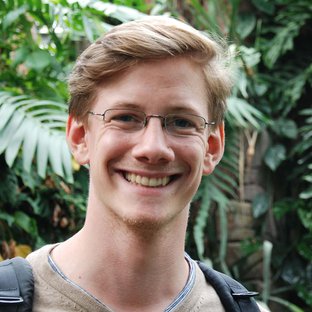
Dr Alexander Weide
Biography
I obtained my BA in Prehistoric Archaeology (major) and Biology (minor) at the Philipps-University Marburg (Germany) in 2011 and my MSc in Archaeological Sciences at the Eberhard Karls University Tübingen (Germany) in 2014. After the completion of my PhD in Archaeobotany at the same university in 2018 I came to the School of Archaeology in Oxford with a Marie Skłodowska-Curie Fellowship. I was awarded a Leverhulme Trust Early Career Fellowship in December 2021, focusing on socioeconomic and ecological interactions during the Neolithic transition in southwest Asia.
Research Interests
My research interests focus on the interaction and co-evolution of humans and the environments we inhabit. A major strain of my research investigates how human communities in southwest Asia developed plant management strategies during the Pleistocene-Holocene transition, leading to increasing co-dependence between humans and the progenitors of domestic crops (incl. wheat, barley, lentil, chickpea, etc.). In adopting an evolutionary-ecological approach, I aim to understand how non-human beings like plants influenced and drove the process of agricultural origins, recognizing that human evolution was shaped by diverse human and non-human agencies. A second aspect of my research focuses on the entanglements of ecological and socioeconomic developments during the origins of agriculture, where I aim to understand how changes in social interactions and storage practices influenced the selection of traits in plants, resulting in what we today know as crops and arable weeds.
Selected publications
Weide, A., Green, L., Hodgson, J.G., Douché, C., Tengberg, M., Whitlam, J., Dovrat, G., Osem, Y., Bogaard, A., 2022. A new functional ecological model reveals the nature of early plant management in southwest Asia, Nature Plants 8, 623–634
Weide, A., 2021. Towards a Socio-Economic Model for Southwest Asian Cereal Domestication, Agronomy 11:2432
Bogaard, A., Allaby, R., Arbuckle, B.S., Bendrey, R., Crowley, S. Cucchi, T., Denham, T., Frantz, L., Fuller, D., Gilbert, T., Karlsson, E., Manin, A., Marshall, F., Mueller, N., Peters, J., Stépanoff, C., Weide, A., Larson, G., 2021 Reconsidering domestication from a process archaeology perspective, World Archaeology 53, 56–77
Weide, A., Hodgson, J.G., Leschner, H., Dovrat, G., Whitlam, J., Manela, N., Melamed, Y., Osem, Y., Bogaard, A., 2021. The association of arable weeds with modern wild cereal habitats: implications for reconstructing the origins of plant cultivation in the Levant, Environmental Archaeology, 1-16
Weide, A., Arranz-Otaegui, A., Schmidt, A.F., Kim, H., Charles, M., Zeidi, M., Darabi, H., Richter, T., Conard, N.J., 2021. Identification of the Triticoid type grains from archaeobotanical assemblages in southwest Asia as Heteranthelium piliferum (Banks & Sol.) Hochst. (Poaceae), Vegetation History and Archaeobotany 30, 657–674